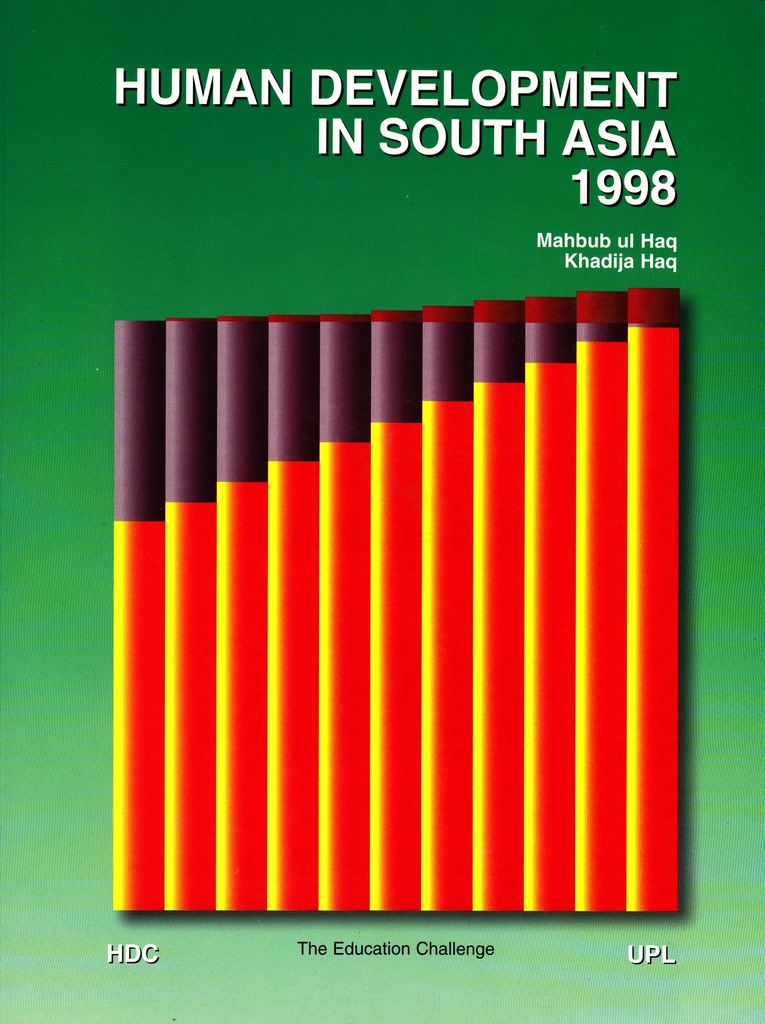- Shop
- Business, Economics and Development
- Human Development in South Asia 1998: The Education Challenge
Human Development in South Asia 1998: The Education Challenge
https://uplbooks.com/shop/9840513940-human-development-in-south-asia-1998-the-education-challenge-6447 https://uplbooks.com/web/image/product.template/6447/image_1920?unique=56f7a2e
| Language: English |
Tags :
Book Info
There are 50 million children not attending primary schools in South Asia. Another 40 per cent drop out of school every year. Yet, despite the fact that South Asia has emerged as the most illiterate region in the world, universal primary education for all in the next five years is not a utopian vision but an achievable reality. Police-makers not only can, but must, act now to end the region's shameful neglect of basic education. This is the central message that emerges from the 1998 Report on Human Development in South Asia. South Asia, containing one-fourth of humanity, has already emerged as the most illiterate, the poorest, the most malnourished, and the least gender-sensitive region in the world. The first Report, Human Development in South Asia 1997, conveyed this shocking message, along with a bold plan to redress the situation in the twenty-first century. This second Report focuses on the critical role of education in accelerating human progress in South Asia. Alongside detailed strategies for raising the quantity and quality of primary education, closing gender gaps, providing a better teaching force, and creating relevant technical skills for expanding domestic and global markets, the Report presents a concrete plan of action for providing universal primary education within the next five years at a recurrent cost of an additional 0.3 per cent of the combined GNP of South Asia. The Report also contains extensive and authoritative data on education and human development in South Asia in an easy-to-read, comparative format. Human Development in South Asia 1998 has been authored by Mahbub ul Haq, President of the Human Development Centre, former Finance and Planning Minister of Pakistan, and founder and chief architect of UNDP's annual Human Development Reports. Research for the Report was conducted by a team consisting of Masooda Bano, Taintur Hyat, Mariyam Z. Khan, Ali Mahdi, Nasreen Mahmood, Adeel Malik, Sadia Mariam, Salina Masud, and Murtaza H. Syed. The overall leadership for guiding and coordinating their work was provided by Khadija Haq, the co-author of the Report and the Executive Vice President of the Human Development Centre. Several distinguished scholars assisted in the preparation of the Report, including Manzoor Ahmed, Fay Chung, Meghnad Desai, Ansar Ali Khan, Victor Ordonez, Gustav Rams, Nafis Sadik, and Paul Streeten. The Report was prepared in close collaboration with the field offices of UNDP and UNESCO in South Asia and with the assistance of UNDP's Regional Bureau for Asia and the Pacific in New York.

Mahbub ul Haq
Development Centre's 2002 Report on Agriculture and Rural Development underlines the imperative of focusing on a human-centred agricultural development in South Asia, as agriculture is the backbone of South Asia's economy and source of livelihood of two-thirds of South Asia's population. Despite South Asia's stunning performance in agriculture during the Green Revolution, the region still hosts some half-a-billion poor people of the world. The Report argues that South Asia's strategy of economic growth needs to be reoriented in order to address the needs and concerns of the majority of its people. This is a unique perspective as most analysts tend to be concerned with the growth of per capita output without analysing its source and distribution. This Report looks at





